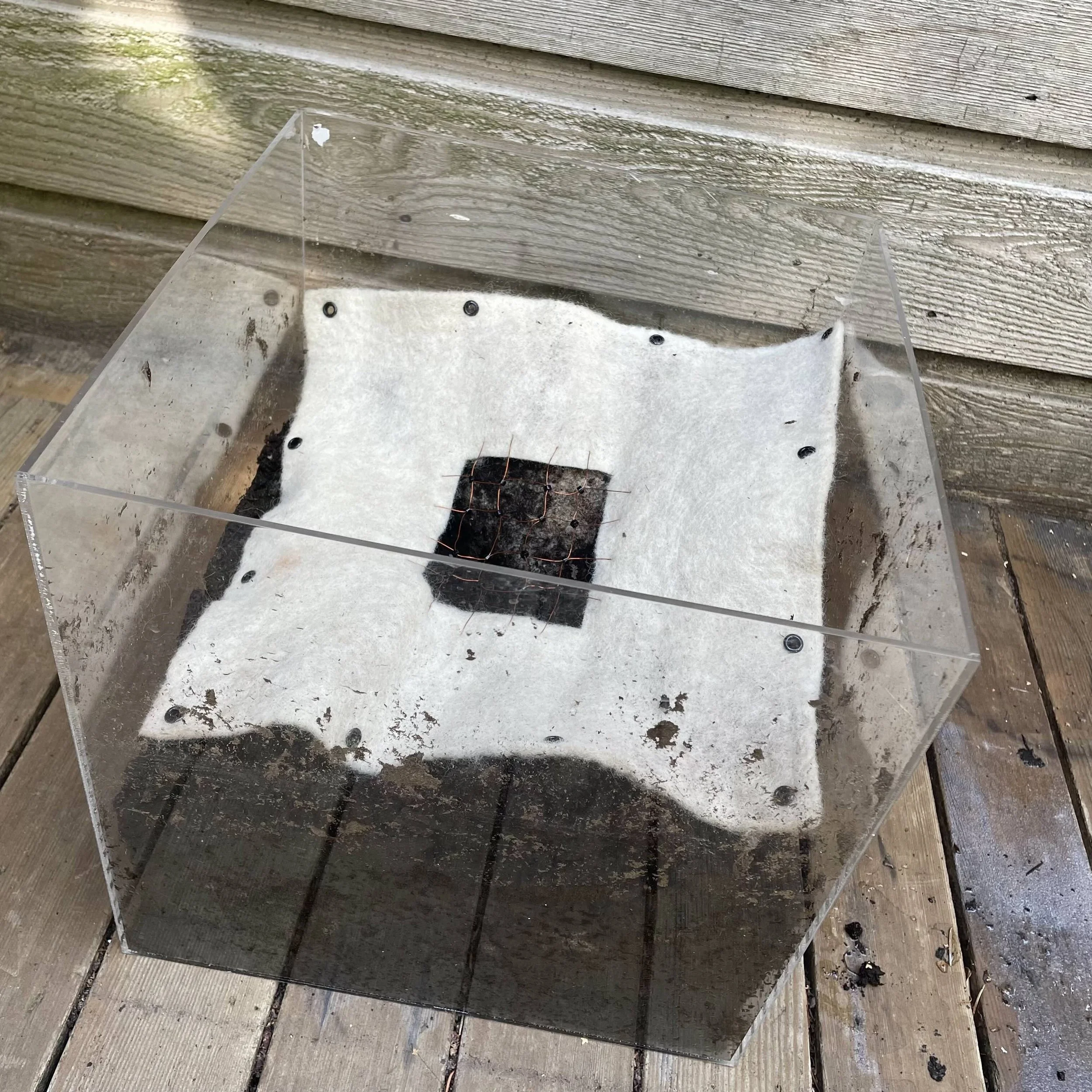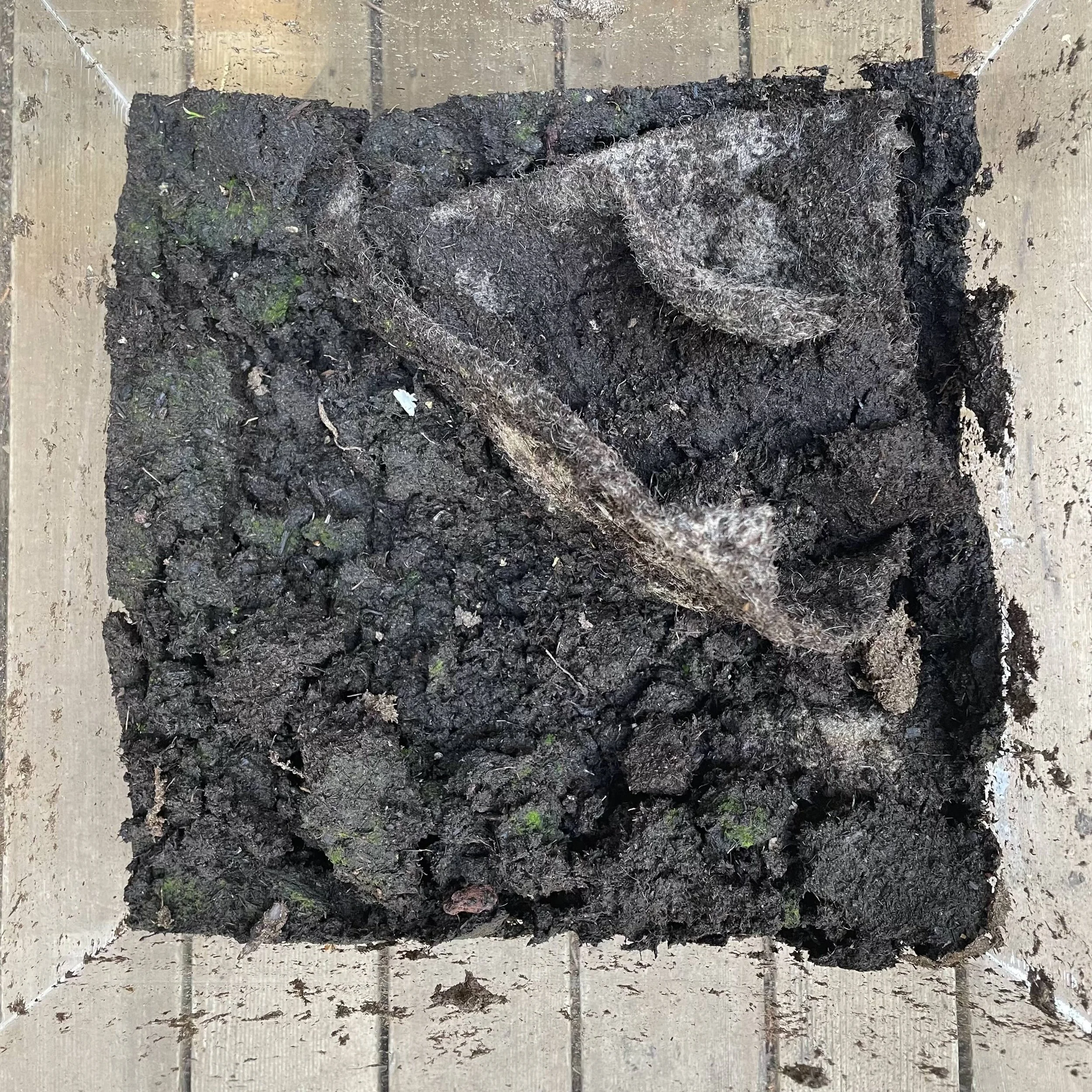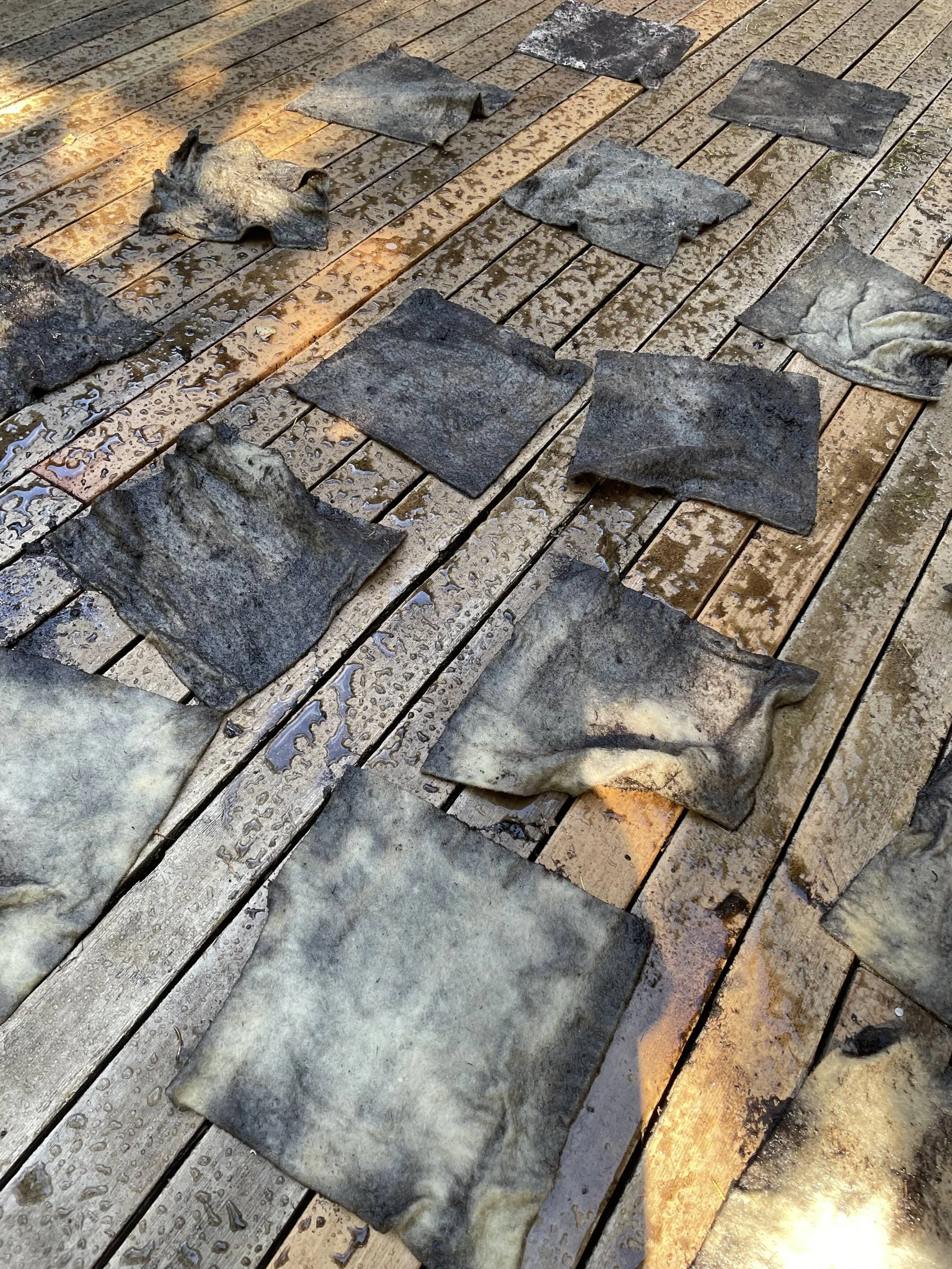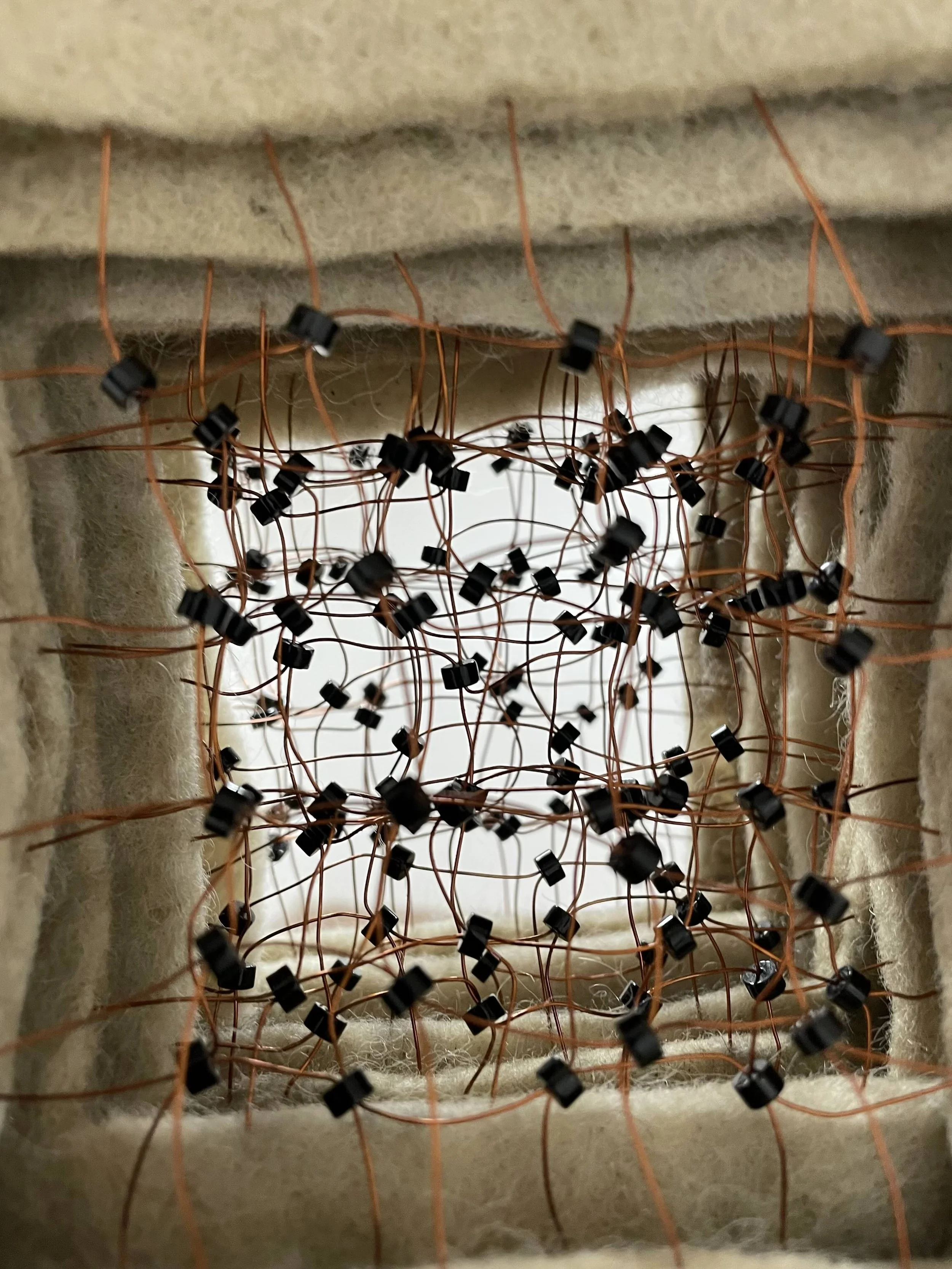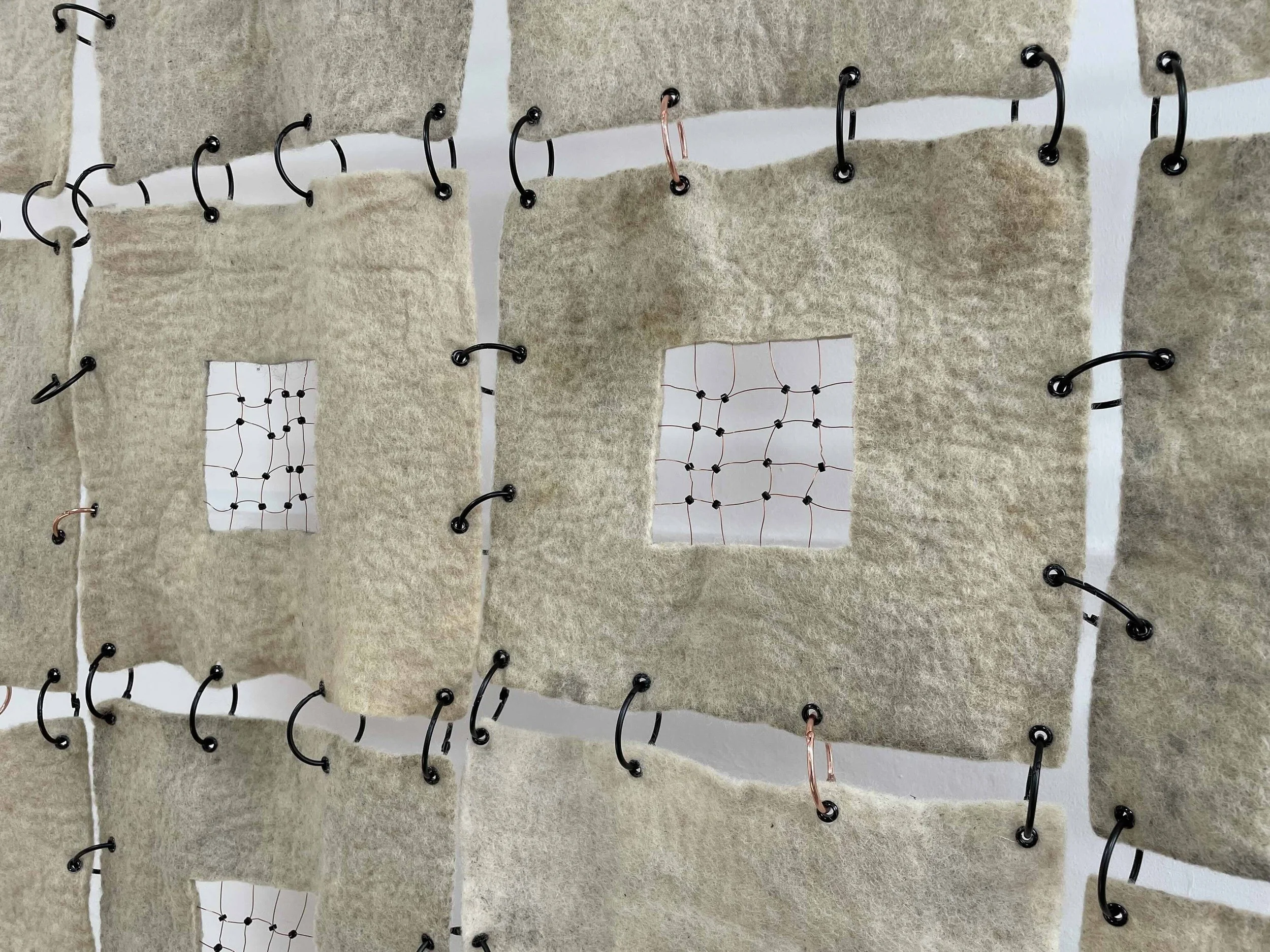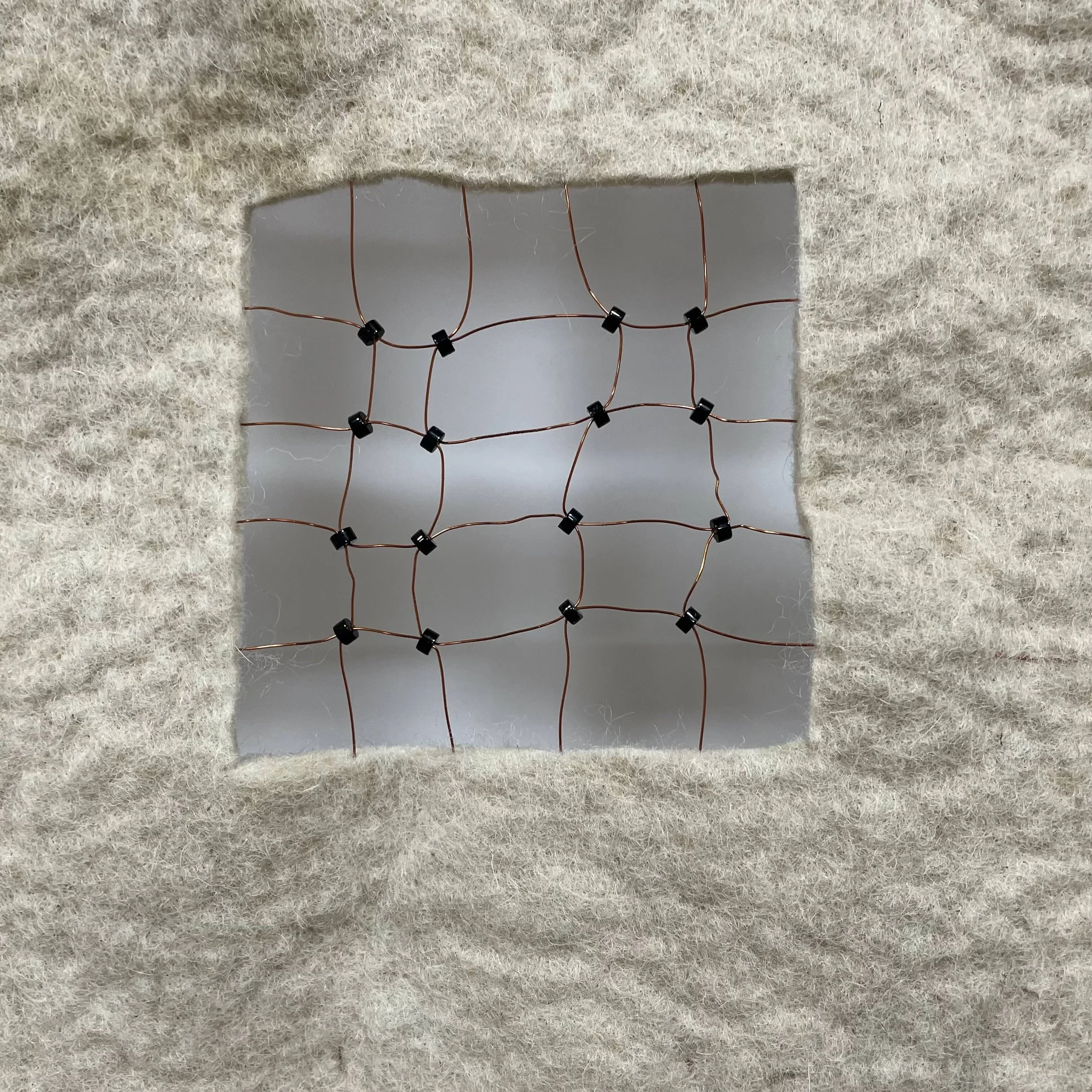Meghan Elizabeth Trainor
Mosehukommelse/Computerhukommelse
Captive Portal, September 2024 (solo exhibition & residency)
Bog Memory / Computer Memory
Bog-dyed felt, copper, obsidian beads, rings, grommets, 2024
This piece connects two systems of memory: the ancient preservative properties of bogs and the physical structure of early computer memory. The 16 sheets of wool felt are interwoven with copper and obsidian beads, resembling the core memory objects used in the Apollo mission to the moon. This work not only references the multitude of human strategies for storage and recollection but also amplifies the connection between textiles and computer systems.
Bogs, the anaerobic wetlands common in both Ireland and Denmark, preserve objects for millennia, even while dissolving bones and darkening organic material. In the Irish and Irish-American imagination, the bog, like wool and knitting, is an icon of cultural heritage. The bog acts as an archive, much like digital memory stores information, keeping objects intact for centuries. In this work, the 16 sheets of felt have been soaked in plexiglass cube “bog batteries,” which Trainor uses to generate low-voltage electricity in other works like “Spacetime Machine with Bog Batteries [Negative Energy is Anti-Gravity],” 2023, and “Bog Battery Spell,” 2022.
Core memory, like its cousin core rope memory, is a relic of mid-century computing, popular before the expansion of magnetic and semiconductor memory. It stored data on a core plane of insulative material, the center woven with copper wire and ferrite cores—in essence, tiny magnetic rings—where the magnetic orientation indicated either a one or a zero, with specific wires used to write and others to read the electrical signals.
This work is part of a larger body of works inspired by Trainor’s 2016 essay “The Familiar Algorythm,” a speculative yet historically grounded exploration of a witch-centered history of technology. Much of this history aligns with the often-erased contributions of women and other underrepresented figures in technology and playfully expands the concept of witch into the highly flexible modern reclamation of the word to indicate independent, nature-minded folk. Her 2019 performative essay “Witch Science on the Moon,” presented at the Salish Sea Anti-Space Symposium at Pipsqueak Anarchist Gallery, expanded on this speculative narrative, pinpointing deeper associations between philosophies of logic, alchemy, witchcraft, and astrophysics.
Her artistic output since 2016 has sought to provide material examples of this barely speculative historic and contemporary witch technology craft culture and its evolution since ancient times. In parallel to this body of work she teaches an online course called Meghan Trainor Witch Tech that adds practice to these theories by teaching Python from the perspective of this witch culture, creating an inviting atmosphere for those who might not feel culturally welcomed in traditional tech spaces. The project makes use of the weird fact that she shares a name with a pop-star and her long held domain is often mistaken for her fans and evolved from an earlier project called #meghantrainiorwitchmemes.
Core Memory object, used to store code for the Apollo mission to the moon.
Bogland
for T. P. Flanagan
Seamus Heaney
We have no prairies
To slice a big sun at evening—
Everywhere the eye concedes to
Encrouching horizon,
Is wooed into the cyclops’ eye
Of a tarn. Our unfenced country
Is bog that keeps crusting
Between the sights of the sun.
They’ve taken the skeleton
Of the Great Irish Elk
Out of the peat, set it up
An astounding crate full of air.
Butter sunk under
More than a hundred years
Was recovered salty and white.
The ground itself is kind, black butter
Melting and opening underfoot,
Missing its last definition
By millions of years.
They’ll never dig coal here,
Only the waterlogged trunks
Of great firs, soft as pulp.
Our pioneers keep striking
Inwards and downwards,
Every layer they strip
Seems camped on before.
The bogholes might be Atlantic seepage.
The wet centre is bottomless.



